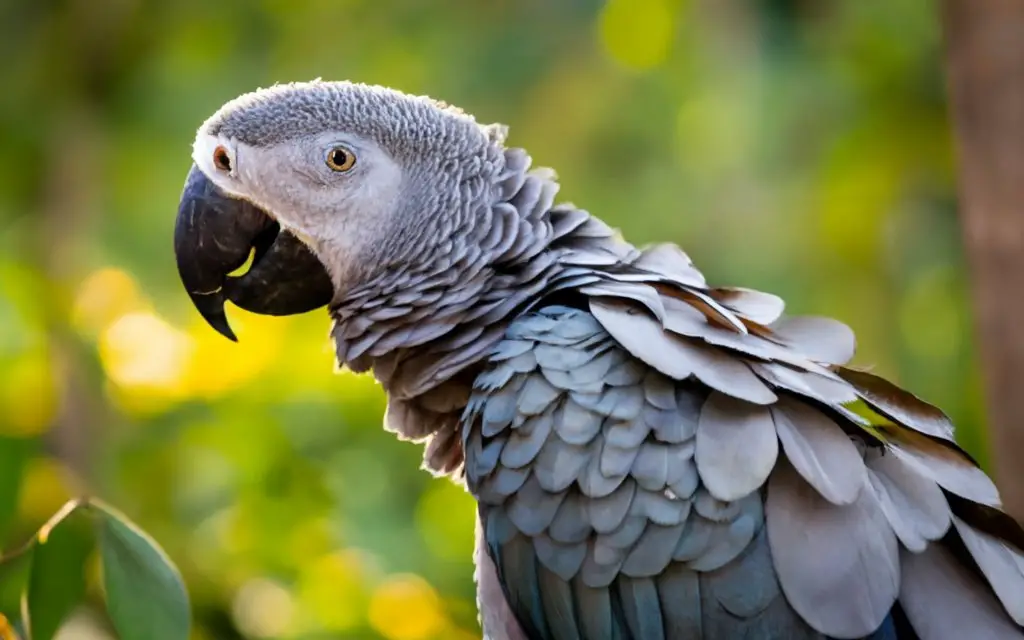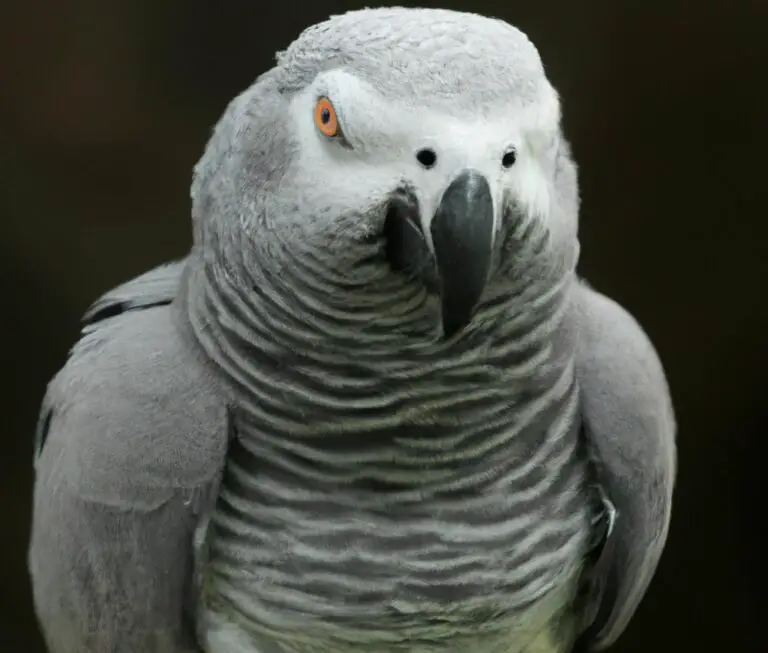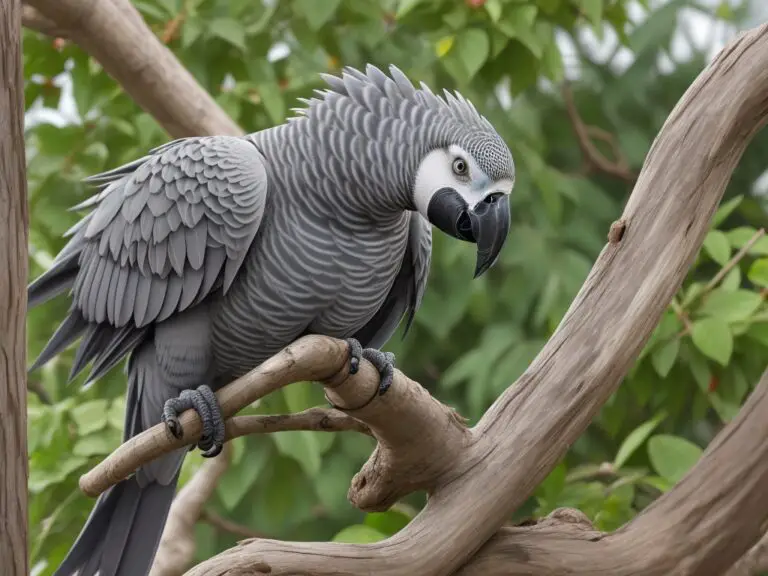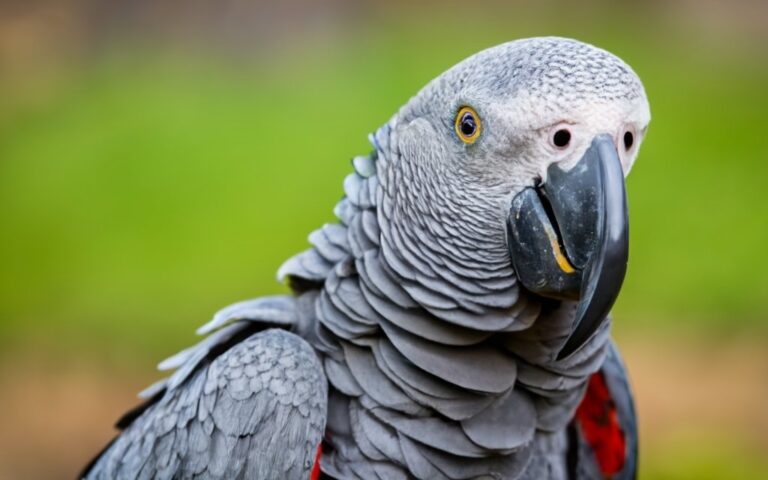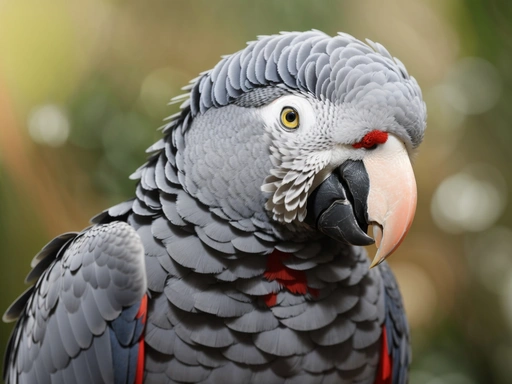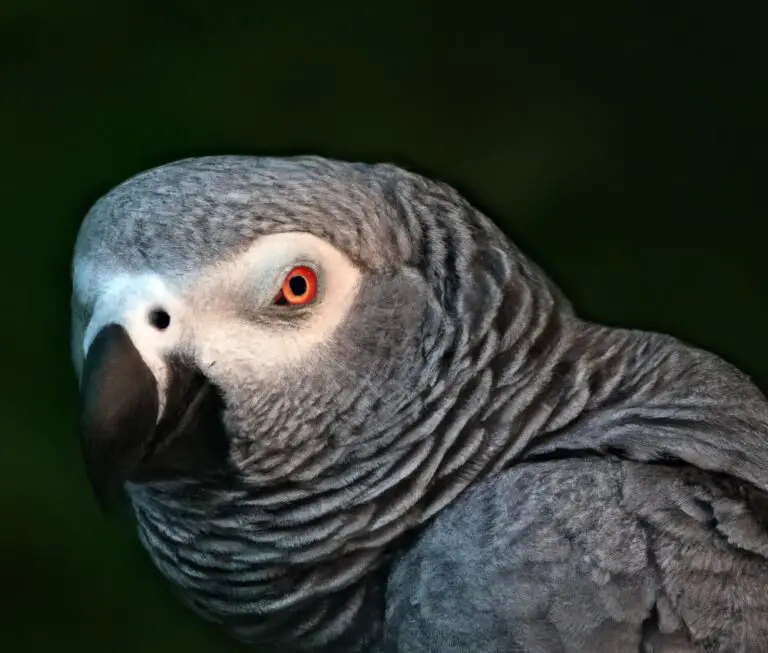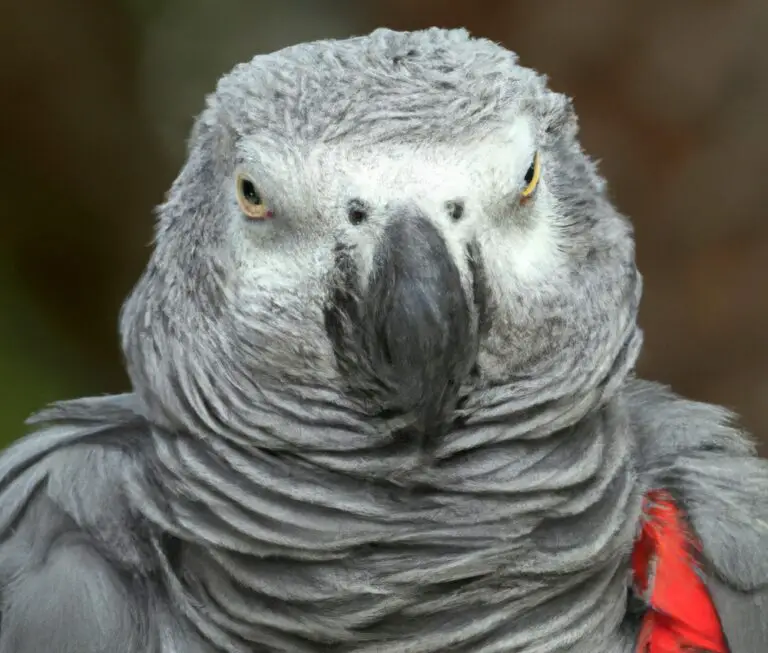Are African Grey Parrots Cuddly?
Key Takeaways:
- African grey parrots can exhibit cuddly behavior, enjoying physical affection from their owners.
- However, their cuddliness may vary from bird to bird, as some African greys may not be as inclined towards cuddling.
- Building a strong bond and trust with your African grey parrot can increase their likelihood of enjoying cuddling.
- Providing appropriate opportunities for physical interaction and touch can help foster a cuddly relationship with your African grey parrot.
Have you ever wondered if African grey parrots are cuddly creatures?
These fascinating birds have captured the hearts of many with their charming personality and remarkable intelligence.
In this article, we’ll delve into the behavior, communication, and emotional sensitivity of African grey parrots to understand their potential for cuddliness.
We’ll also explore the factors that influence their affectionate nature and provide tips on how to foster cuddliness in these exceptional birds.
So, if you’re curious about whether you can snuggle up with an African grey parrot, keep reading to find out!
| Factors | Cuddliness |
|---|---|
| 1. Sensitivity | African grey parrots are highly sensitive and can form strong bonds with their owners, often enjoying cuddling and physical affection. |
| 2. Body Language | They may lean towards their owners, cuddle against their chests, and happily accept head scratches and cuddles. |
| 3. Vocalization | Cuddling birds may display contentment with purring sounds and gentle vocalizations. |
| 4. Comfort Zone | African grey parrots have individual preferences, and while some may enjoy cuddling, others may prefer different forms of interaction. |
| 5. Socialization | Proper socialization from an early age can positively influence a parrot’s cuddly behavior. |
Understanding African Grey Parrot Behavior
African Grey Parrots have unique behavior patterns that can be fascinating to understand.
Social Behavior of African Grey Parrots
African Grey Parrots are highly social birds that thrive on interaction with their human and avian companions. They often form strong bonds with their primary caretaker and can become quite affectionate.
These parrots are known for their intelligence and ability to mimic and communicate, making them engaging companions.
However, they can also be sensitive and may develop behavioral issues if not provided with proper socialization and mental stimulation. It’s important to provide them with opportunities to socialize, play, and engage in activities to ensure their well-being.
Communication and Vocalizations of African Grey Parrots
African Grey Parrots are known for their impressive communication skills and vocalizations. They have the ability to mimic human speech with incredible accuracy and can learn a large vocabulary.
They can also use their vocalizations to express their emotions, such as happiness, excitement, and even boredom or frustration.
Additionally, African Grey Parrots use body language, such as fluffing their feathers or raising their crest, to communicate. Paying attention to their vocalizations and body language can help you understand what your parrot is trying to convey.
Intelligence and Emotional Sensitivity of African Grey Parrots
Intelligence and emotional sensitivity are key traits of African Grey Parrots. They are renowned for their high level of cognitive ability, often compared to that of a young child.
They can learn and understand complex concepts and have exceptional problem-solving skills.
Additionally, African Grey Parrots are highly sensitive and perceptive creatures. They are capable of picking up on human emotions and can display empathy.
They can form deep bonds with their owners and are known for their ability to mimic and understand human speech.
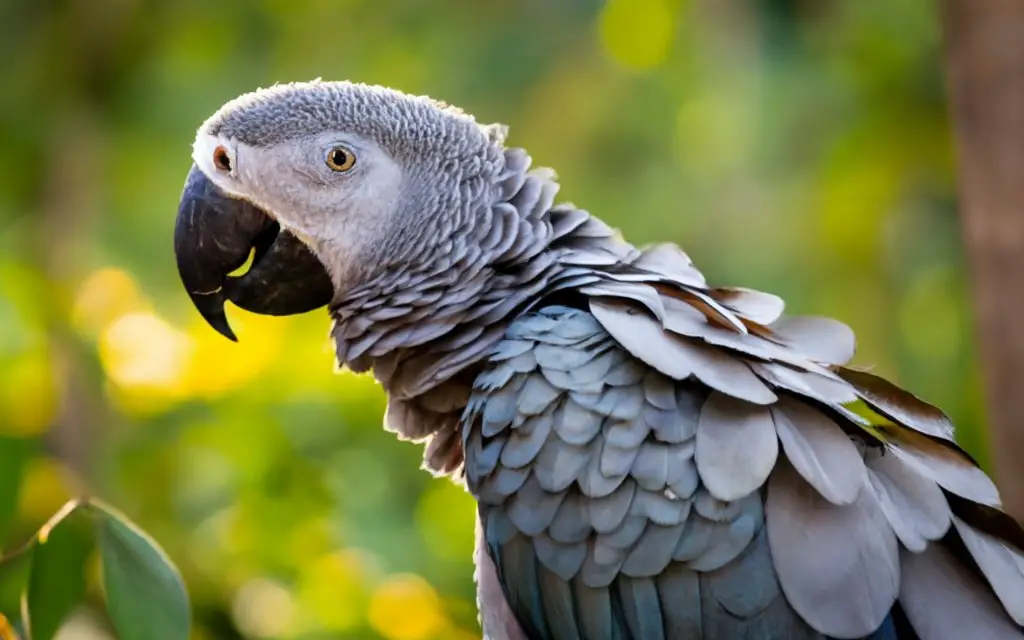
African Grey Parrots and Human Interaction
African Grey Parrots thrive on human interaction and can form strong bonds with their owners.
They enjoy socializing, participating in activities, and engaging in training sessions with their human companions.
Bonding with African Grey Parrots
Bonding with African Grey Parrots is essential for creating a strong and trusting relationship. Spend quality time with your parrot, talking and interacting.
Offer treats and rewards for good behavior.
Patience and consistency are key. Building trust takes time, but it’s worth it!
Training and Enrichment for African Grey Parrots
African Grey Parrots are highly intelligent and require mental stimulation for their well-being. Training can help engage their minds and build a bond with them.
Enrichment activities like puzzle toys, foraging, and interactive play can keep them mentally and physically active.
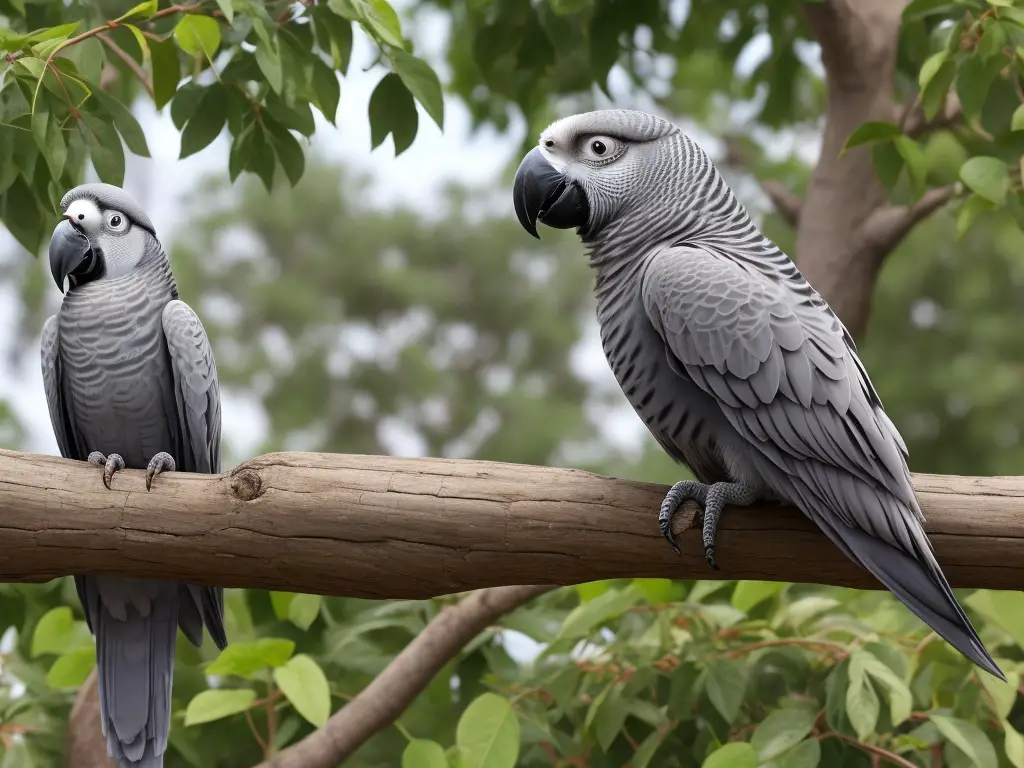
Common Challenges in Caring for African Grey Parrots
Common challenges in caring for African Grey Parrots include providing mental stimulation, managing their high intelligence, and addressing potential behavior problems.
They need a lot of mental and physical stimulation to prevent boredom.
Communication is also crucial, as African Grey Parrots can become stressed or develop behavior issues if they feel ignored or neglected.
Regular training sessions and enrichment activities, such as puzzles and toys, can help keep them engaged and prevent behavioral problems.
Additionally, consistent and positive reinforcement training methods are important for fostering a healthy and trusting relationship with your parrot.
Are African Grey Parrots Cuddly?
African Grey Parrots can definitely be cuddly companions if they are given the right environment and socialization.
Affectionate Behaviors of African Grey Parrots
African Grey Parrots can exhibit several affectionate behaviors. They may enjoy cuddling, preening their owners, and even giving gentle nibbles.
These parrots are known to form strong bonds with their human companions and often seek out physical contact.
Some may even mimic their owner’s actions or words as a sign of affection. However, it’s important to remember that each parrot is unique, and their affectionate behavior may vary.
Factors Influencing a Parrot’s Cuddliness
There are several factors that can influence a parrot’s cuddliness.
Firstly, the parrot’s species and individual personality play a role.
Some species are naturally more affectionate and enjoy physical contact.
Secondly, the level of socialization and bonding with humans also affects a parrot’s cuddliness.
Parrots that have been raised in a nurturing environment and have positive experiences with humans are more likely to seek cuddles.
Additionally, the parrot’s past experiences and interactions with humans can shape their willingness to engage in cuddling.
Lastly, the parrot’s overall well-being and comfort also contribute to their cuddliness.
A parrot that feels safe, secure, and comfortable in their environment is more likely to enjoy cuddling.
It’s important to understand and respect each parrot’s individual preferences and comfort zones when it comes to cuddling.
How to Foster Cuddliness in African Grey Parrots
To foster cuddliness in African Grey Parrots, it’s important to establish trust and a strong bond. Spend quality time with your parrot, offering treats and positive reinforcement.
Respect your parrot’s comfort zone and gradually introduce cuddling interactions.
Use gentle and safe techniques, like head scratches and gentle petting, to encourage affectionate behaviors.
Tips for Cuddling with African Grey Parrots
Establishing trust, recognizing comfort zones, and using safe techniques are key for enjoyable cuddling sessions with African Grey Parrots.
Establishing Trust with Your Parrot
To establish trust with your parrot, spend time near their cage, speaking softly and offering treats. Gradually move on to feeding from your hand and eventually step-up training.
Consistency, patience, and positive reinforcement are key in building a strong bond with your feathered friend.
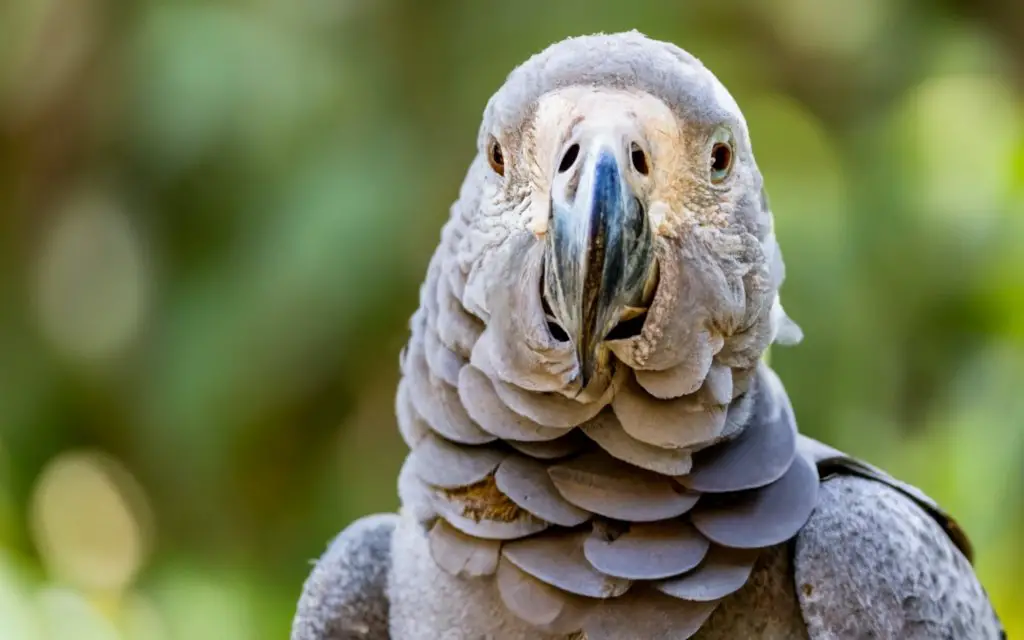
Recognizing Your Parrot’s Comfort Zone
Recognizing your parrot’s comfort zone is important for creating a positive and enjoyable interaction. Pay attention to their body language, such as relaxed posture, open beak, and non-aggressive behaviors.
Avoid pushing their boundaries and always respect their personal space.
Trust and understanding are key!
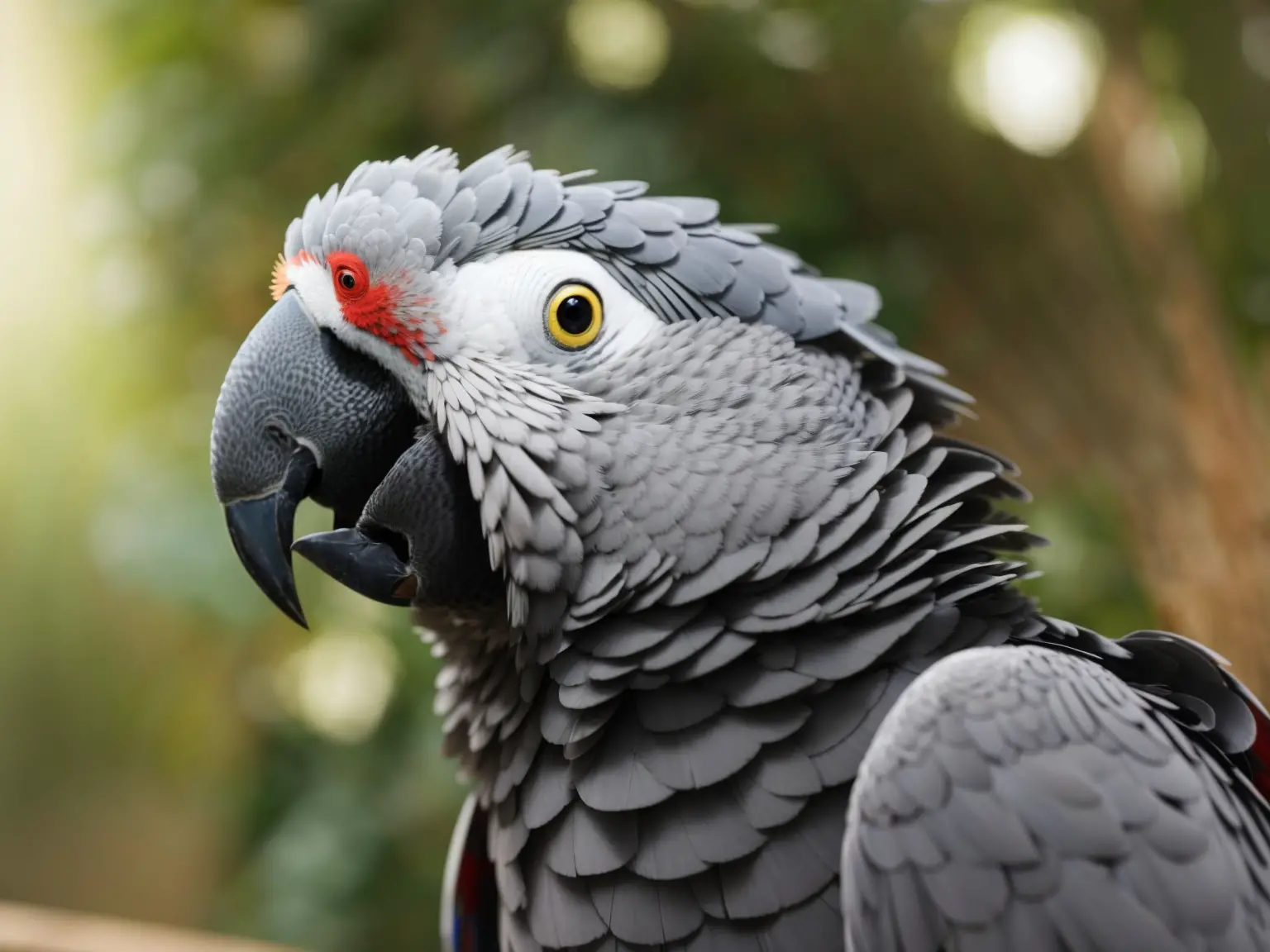
Safe and Enjoyable Cuddling Techniques
To ensure safe and enjoyable cuddling with African Grey Parrots, it’s important to establish trust and respect with your parrot.
Slowly introduce physical touch, starting with gentle head scratches or neck rubs.
Pay attention to your parrot’s body language, and respect their comfort zone.
Avoid forcing cuddles and be aware of sensitive areas like wings and tail.
Always prioritize your parrot’s well-being and welfare.
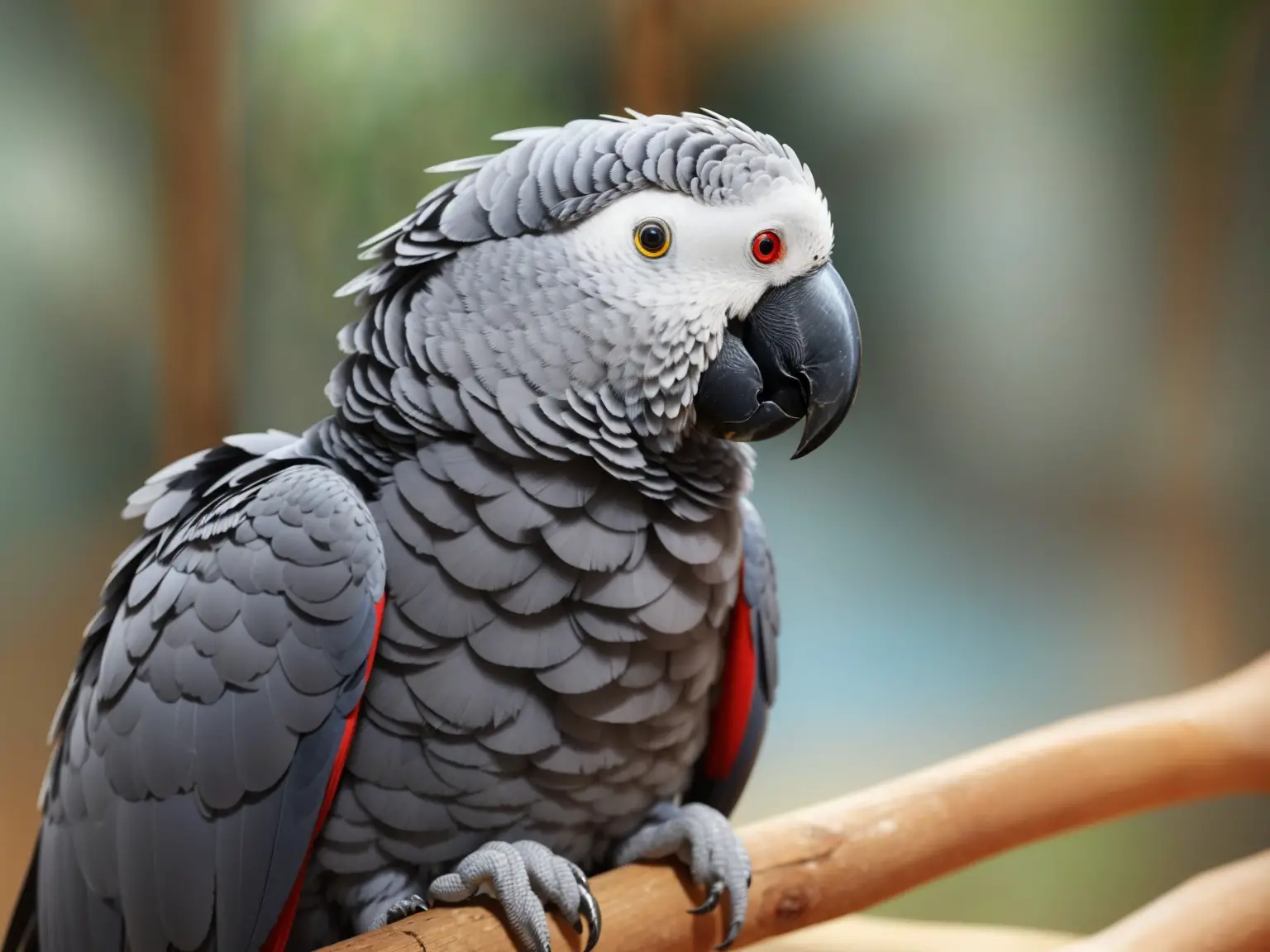
Final Verdict
African Grey Parrots are highly intelligent, social, and emotionally sensitive creatures.
While they may not be naturally cuddly like some other parrot species, they are capable of forming deep bonds with their human caretakers.
Building trust, respecting their comfort zones, and understanding their individual preferences are key to fostering a loving and affectionate relationship with these magnificent birds.
With patience, training, and enrichment, cuddling moments with African Grey Parrots can be rewarding and enjoyable for both parties involved.

